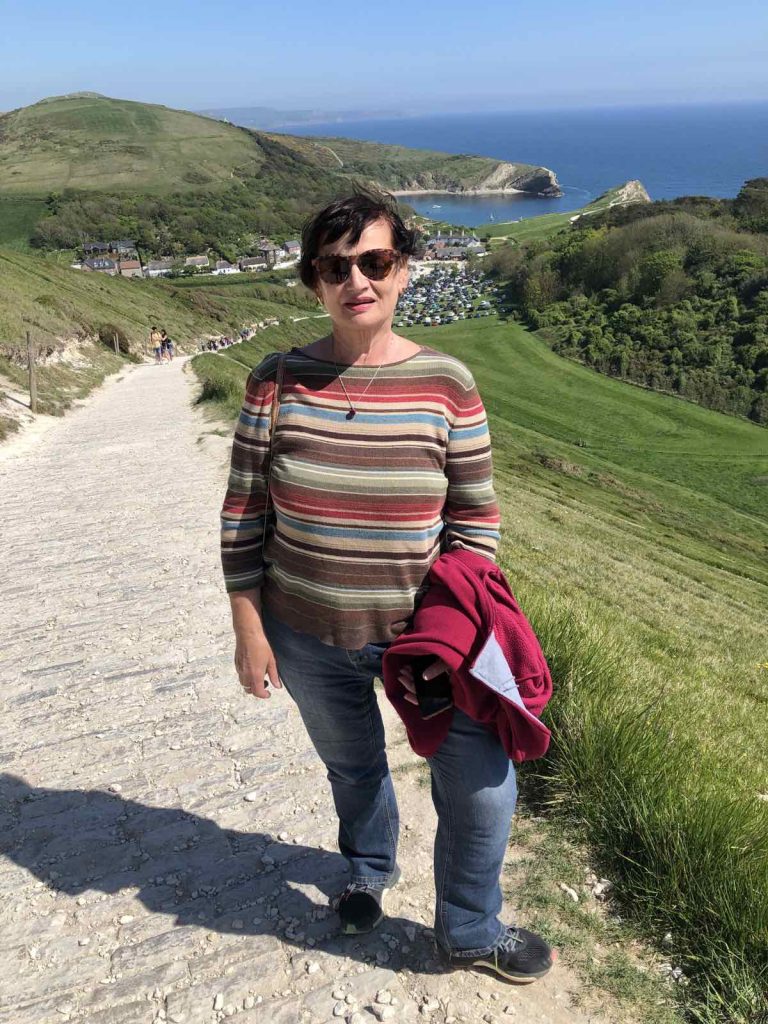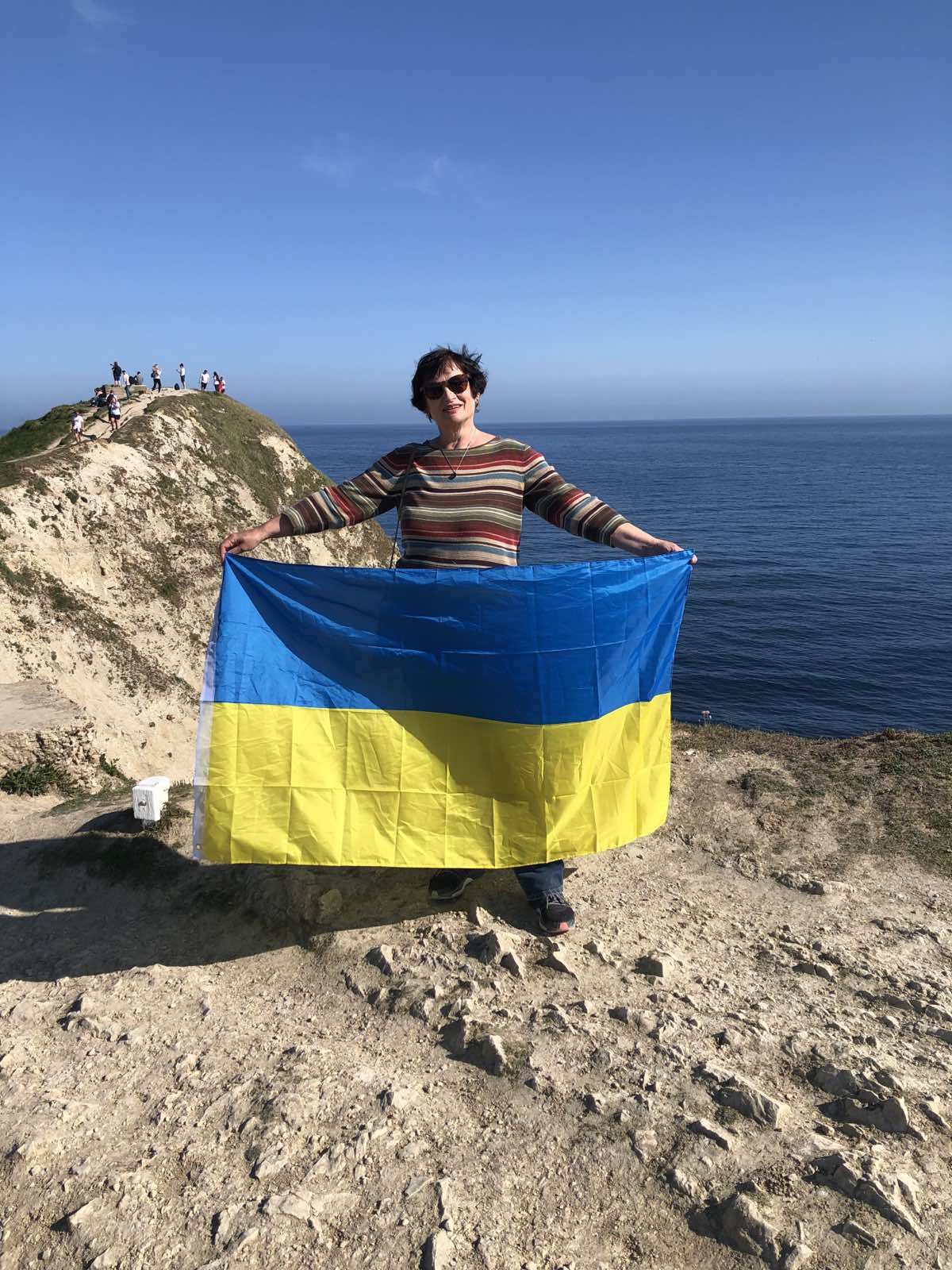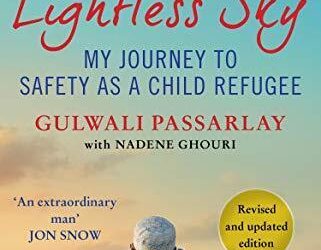Tatiana Teryakhina from Ukraine gives her insights into life in London and advice on how to adjust to living in a different country.
I was lucky – I left Ukraine for Budapest a few days before the war. I was lucky not to hear sirens or experience severe bombing and shelling. I saw destroyed buildings, damaged roads, mutilated fields, and dead bodies only on TV and photos, and it broke my heart. It is hard to describe my feelings at that time: fear, anger, despair, fury, hope, hopelessness, and hope again.
It’s hard to be far away from home without knowing what exactly is going on there. It’s hard to be away from your family and friends. It’s hard to get used to new life and learn habits and ways which you don’t always understand. It’s hard to get by with what you have. But it’s much better than being in danger and stressed all the time! The main thing is that I am alive, and I am safe here in the country which has opened not only the doors for Ukrainian refugees, but also the hearts and souls of its wonderful people.
My case in the UK may not be typical as I don’t have a problem with the language, English was my major at the university and I used to work as an interpreter a while ago. This means I didn’t need help in filling in the many forms I needed, e.g for Universal Credit ,Universal Credit: What Universal Credit is – GOV.UK (www.gov.uk) National Insurance number National Insurance: introduction: Overview – GOV.UK (www.gov.uk) or registering with a GP.How to register with a GP surgery – NHS (www.nhs.uk) As Ukrainians under “Home for Ukraine” Homes For Ukraine – Connecting families between Ukraine and the UKor “Family Scheme”, Apply for a Ukraine Family Scheme visa – GOV.UK (www.gov.uk) we are eligible for the same benefits as British citizens, although I was worried at first that ‘credit’ meant, I would have to pay it back, but a friend explained that this is a benefit. She has also explained a lot of other things to me, showed me around and still supports me a lot, so again I am lucky to have a local friend, and our friendship goes back to the early nineties when we worked together in Ukraine. She also gave me tips and hints on job seeking as I want to work.
One of the most useful sources of information for me has been the Council’s ‘Connected Community Group’ which now receives refugees three times a week in different locations and shares opportunities and provides information and help with documents like Universal Credit. I am over 60 so it was very helpful to find out that I can apply for a free Oyster photocard to travel around London free of charge, as transport here is very expensive. 60+ London Oyster photocard – Transport for London (tfl.gov.uk)
Though I visited the UK before, and London in particular, and I am an experienced traveller, there are still a few things that took me a while to get used to, and I haven’t got used to some yet!
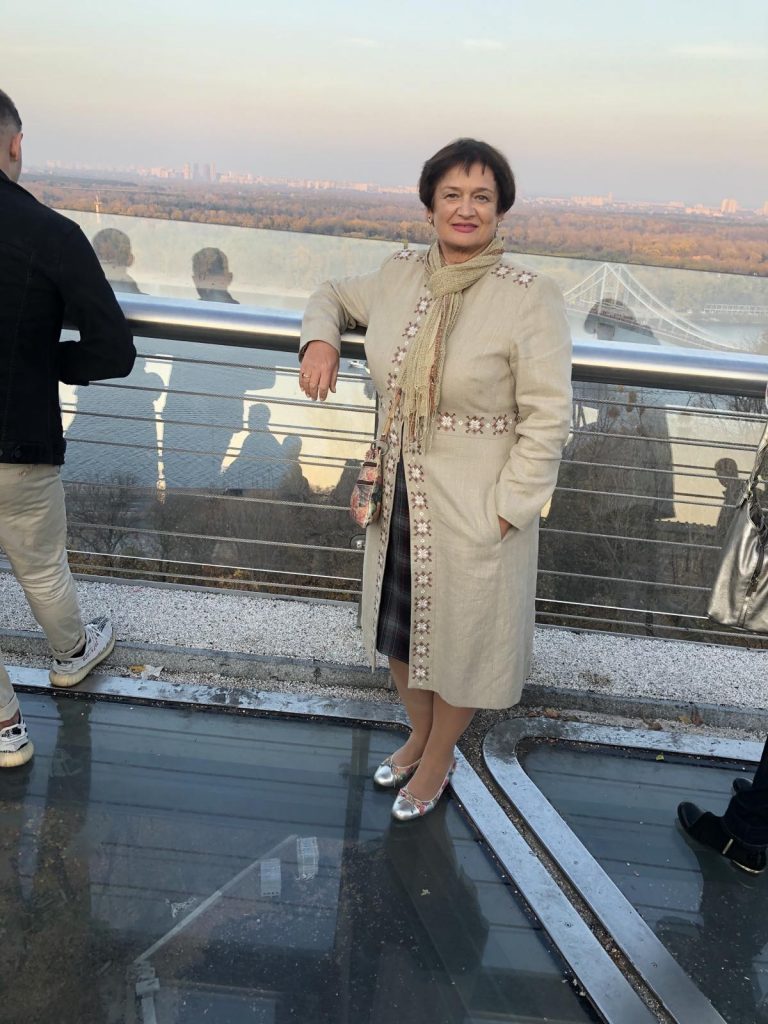
I still can’t get used to the fact that in the UK you drive “the wrong side” of the road. The instincts don’t change overnight! I still look on the wrong side for the cars when crossing the road, and a couple of times, I wasn’t run over simply because the drivers were very careful! I have to be alert now and coming to the crossing I try to concentrate and not use my phone. Find out about the rules of the road: The Highway Code – Guidance – GOV.UK (www.gov.uk)
I can’t get used to the local weather either. It may be nice and warm in the morning, and all of a sudden the weather changes 180° and the wind knocks you down and it starts raining. Or it’s cool and gloomy in the morning and you put your warm jacket on, and in half an hour you are sweating with heat… I came to the conclusion that at all times it’s better to be dressed in layers: a T-shirt, a long-sleeved jumper, and a windbreaker or warmer jacket depending on the season. And instead of a nice small lady’s purse, I carry a backpack now to put all these clothes in when it’s hot and retrieve them when it gets cold. And an umbrella of course, is a must!
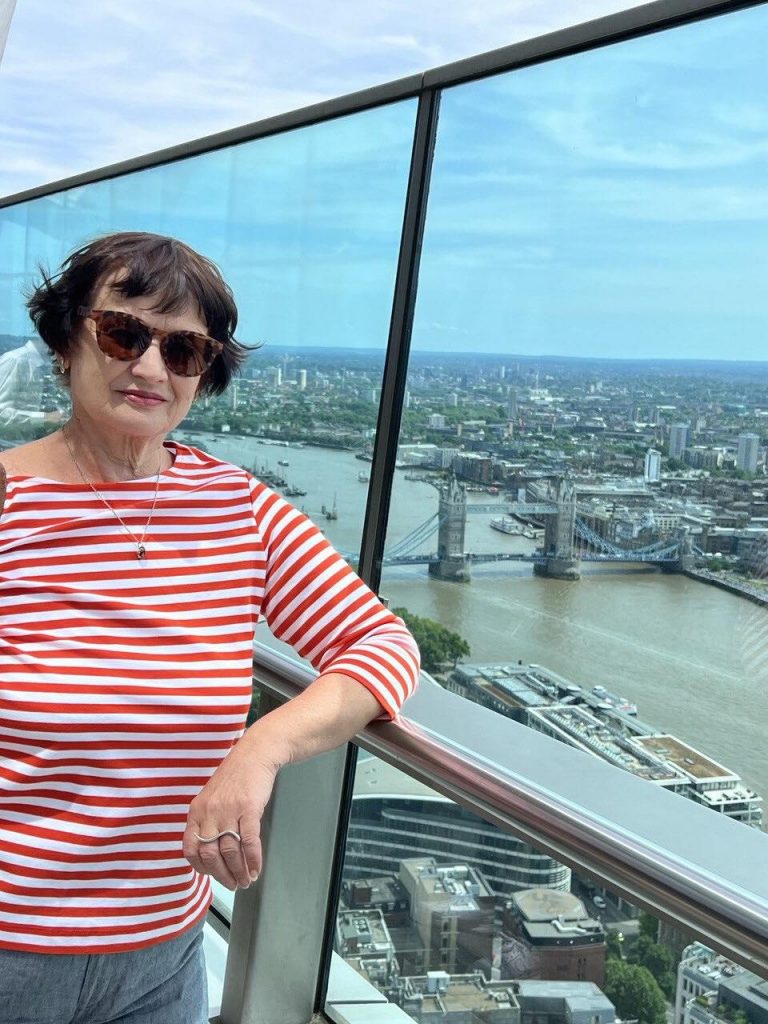
I have found that cooking habits are very different in the UK compared to Ukraine. In my country, we cook everything from scratch .So if, for instance, we are preparing fish, we gut and fillet it. We hardly have good ready meals or prepared sauces which might be better for the environment, but it means cooking takes much longer, so if we are preparing a meal, we normally make enough to last for 2 or 3 days. The British cook for one meal and that’s it. Also, in Ukraine, lunch is normally the largest meal of the day with soup and main course, and then it’s a light supper – here, its sandwiches for lunch and then a big meal in the evening. On holidays, we cook a lot of food, main course, salad, fish, meat, various snacks, pastries, and in the UK, its more simple: starter, main course and a desert. I was invited to dinner recently and it was so nice, a quick, easily cooked meal. But I must admit that lately the tendency in Ukraine is changing in favour of sandwiches for lunch and cooked dinners.
Another thing that was hard for me to get used to was the temperature in British homes. In Ukraine in most of our lodging buildings, especially the old ones, there is central heating on 24/7 during the cold season which is from mid-October to the end of March, sometimes to mid-April, i.e. at least 6 months. The temperature in our homes depends on how effectively the house or apartment is insulated, and if it’s good, we just open the windows when it gets hot☹. Not a very effective way of heating I am afraid, and I am sure this will change with the construction of new buildings with individual heating after the war. In the UK the heating is turned on twice a day – for about one hour (or even less!) in the evening before going to bed and one hour in the morning before you get up. The rest of the day it’s quite cold, and if you stay in, you just dress warmly. Since I left Ukraine with a small carry-on suitcase and I didn’t have many clothes, I had to be inventive about how to keep myself warm☺. By the way, you don’t realize how little you can get by with until you are in a situation similar to the ones that most Ukrainians find themselves now…
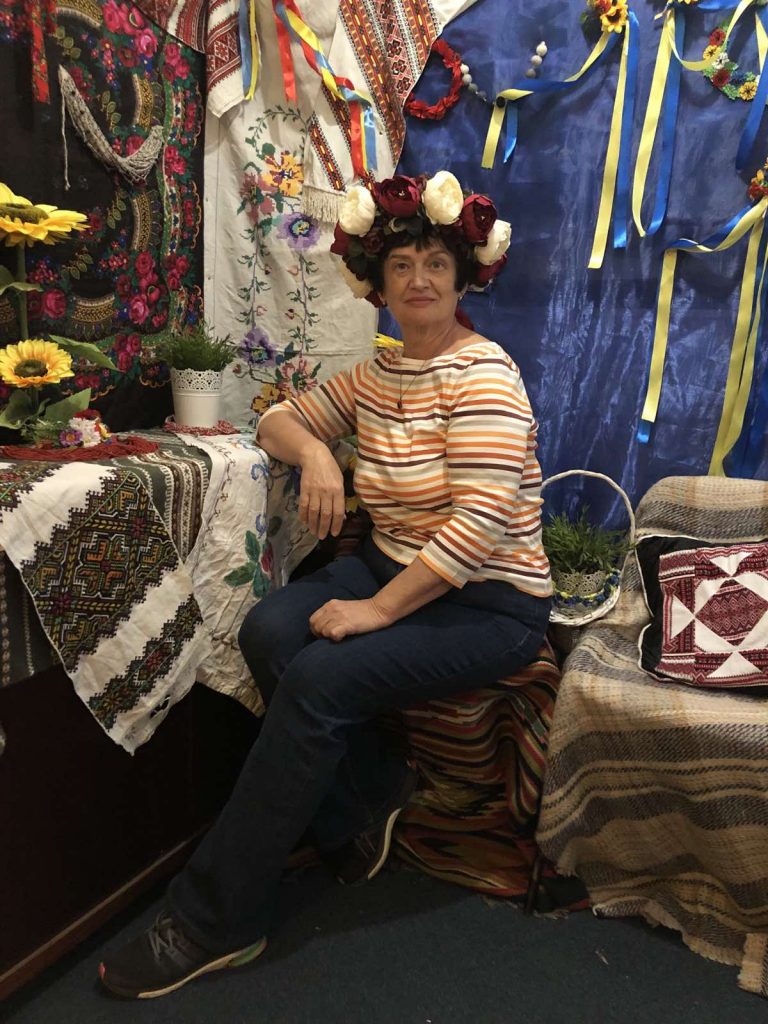
I would like to say that during my two months in London, I completely fell in love with the city! I am surprised that there are so many things that you can do for free here! First of all, museums. All state museums are free,Free museums in London – Museum – visitlondon.com and limited English shouldn’t stop you as art doesn’t need translation. With my love for the arts this leaves me an “unploughed field” which I have already started to work on. There are free lunch concerts on Fridays in Royal Opera Househttps://www.roh.org.uk/tickets-and-events/live-at-lunch-details. There is a wonderful Sky Garden on the top of walkie-talkie building where you can see the whole of London. Ukrainian community in London also organise some free events, e.g. you can find excursions around London free for Ukrainian refugees Ukrainians in London – Ukrainian expats in London (internations.org)from a wonderful Ukrainian guide. I have already been to three excursions around London, and on two full-day tours outside London, also organised for Ukranians. One was to Stone Henge and Durdle Door, and the other to the heart of England – the Cotswolds. Both tours were absolutely fantastic! These tours were not free as they required transportation, but when will I have another chance, especially if travelling is one of my biggest passions in life? This passion was completely messed up first by Covid and then by the war… Still I think it’s very important not to retire in your shell in such difficult circumstances, on the contrary, use every opportunity to see and absorb as much as possible of British culture, arts, lifestyle, cuisine and so on while we are here. We Ukrainians do hope that Ukraine will win and build anew soon, and we will be able to go back home – so why not use the chance to explore the country which has become our home for now?
